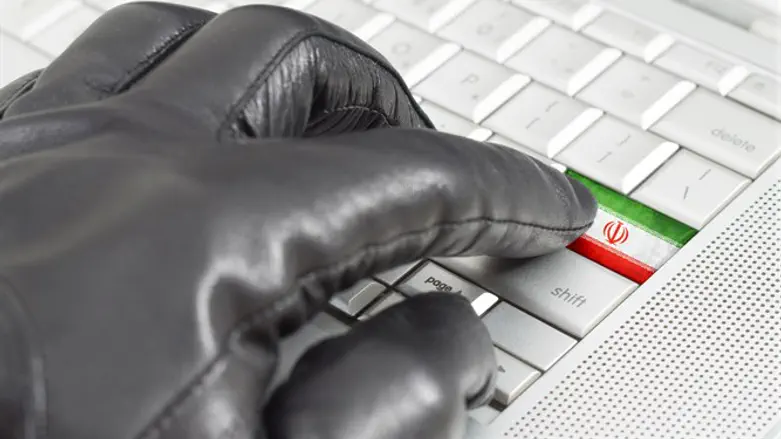
The New York Times has revealed the level of embarrassment and apprehension facing officials in Tehran following the string of assassinations and mysterious attacks attributed to Israel's Mossad in recent months. These have included a spade of strikes on the Islamic Republic's nuclear facilities, transport ships and arms convoys, as well as assassinations of senior members of the state's nuclear program beginning with the killing of the "mastermind" of the country's plan to achieve nuclear breakout, Muhsin Fahrizadeh.
An article published in the New York Times discloses just how much fear Israel's feared intelligence network has instilled in top circles of Iran's counter-intelligence service, who suspect the Jewish state may have succeeded in planting numerous agents in the country's most sensitive locations.
The Times quotes the head of the Iranian parliament's strategic center as saying that, "Iran has become a spy haven," while a former Revolutionary Guards commander called for a "general overhaul" of the country's security and intelligence apparatus.
Some lawmakers in the Iranian parliament have also demanded the resignation of senior security and intelligence officials following the attacks.
The biggest fear in Iran is that Israeli intelligence has managed to deploy a large network of anti-regime spies and collaborators that authorities are not aware of and that the next strike may come as a complete surprise. The confusion within Iran's intelligence services has fermented an environment in which even actions not necessarily perpetrated by enemy states immediately become fertile ground for numerous conspiracy theories and security concerns.
This was the case with the death of the deputy commander of the Iranian Revolutionary Guards Corps' Quds Force, Brigadier General Mohammed Hejazi, who pronounced dead this past Sunday, April 18, according to the IRGC, alleging a "heart attack" as the source of his death without without providing additional details.
Following the latest death of a senior IRGC operative, suspicion immediately arose that Hejazi's sudden death was the result of another Israeli strike. The Times article states that a 2019 Israeli intelligence report referred to Hajazi as a "leading figure" Hezbollah's efforts to attain precision missiles and the Iran's military buildup in Lebanon.
One of the fascinating points in the article has to do with the Mossad's success in transferring tens of thousands of top-secret Iranian nuclear documents to Israel. Reporters cite a former Israeli intelligence official who claims that in order to carry out such an operation, "she and a fellow agent would travel in the area of the reactor and create fake crises such as car accidents or civilian medical emergencies in order to request help from facility staff" and "identify weaknesses in the security system, allowing other agents to neutralize it."
The article also quotes Iranian military commentators claiming Tehran is very afraid of direct revenge attacks against the Jewish state with the potential of an all-out military conflict, especially with the country sinking deeper into the latest wave of the Coronavirus crisis.